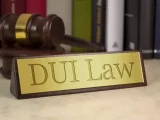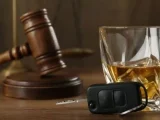
Navigating New York DWI Penalties: A Complete Guide for DUI/DWI Laws & Fines
March 13, 2024Driving While Intoxicated (DWI) and related offenses carry substantial penalties in the state of New York. Understanding the laws and consequences of a DWI conviction is crucial for anyone facing such charges or wanting to stay informed about legal responsibilities. This comprehensive guide aims to provide an in-depth understanding of DWI offenses, their consequences, and the legal process in New York.
Understanding DWI Offenses in New York
What constitutes a DWI offense in New York?
In New York, a DWI offense occurs when a person operates a motor vehicle with a blood alcohol content (BAC) of 0.08% or higher, or while impaired by alcohol, drugs, or a combination of both. Additionally, Driving While Ability Impaired by Alcohol (DWAI) is another offense where the BAC is between 0.05% and 0.07%, and driving ability is impaired.
What are the penalties for a DWI conviction in New York?
A DWI conviction in New York can result in severe consequences, including fines, license suspension or revocation, mandatory alcohol assessment and treatment, and potentially even imprisonment. The severity of penalties may increase with prior DWI offenses, aggravating factors, or the presence of other violations.
What is the blood alcohol content (BAC) limit for DWI in New York?
The legal BAC limit for a DWI offense in New York is 0.08%. However, even a lower BAC can lead to a DWAI charge, highlighting the strict stance against impaired driving in the state.
Consequences of a DWI Conviction
How does a DWI conviction affect one’s driving privileges?
A DWI conviction can lead to the suspension or revocation of an individual’s driver’s license, resulting in the loss of driving privileges for a specified period. The severity of the penalty often takes into account the nature of the offense and any prior convictions.
Are there additional penalties for aggravated DWI in New York?
Aggravated DWI, often involving higher BAC levels or other aggravating circumstances, can lead to enhanced penalties, such as increased fines, longer license revocation periods, and potential felony charges.
What are the potential fines and jail time for a first-time DWI offense?
For a first-time DWI offense in New York, the potential fines can range from hundreds to thousands of dollars, accompanied by the possibility of incarceration for up to one year, depending on the circumstances of the case.
New York State Laws and Penalties for DUI
What are the specific laws governing DUI in New York?
Various statutes and regulations in New York govern DUI and related offenses, outlining the legal BAC limits, penalties, and procedures for handling DWI cases. Understanding these laws is crucial for anyone involved in a DWI case, either as an offender or as part of the legal process.
What are the consequences of refusing a chemical test for alcohol or drugs in New York?
Refusing a chemical test in New York can lead to a separate offense, resulting in the automatic suspension of driving privileges and additional penalties. This emphasizes the importance of compliance with such tests, as mandated by state law.
How does the zero-tolerance law impact underage DUI offenses in New York?
New York’s zero-tolerance law imposes strict penalties on underage individuals found to be driving with even a minimal level of alcohol in their system. This approach aims to deter underage drinking and driving, prioritizing the safety of young drivers and other road users.
Navigating the Legal Process for DWI Charges
What are the steps involved after being arrested for a DWI in New York?
Following a DWI arrest in New York, individuals may face various legal proceedings, including hearings, trials, and potential negotiations with prosecutors. Understanding the legal process and available defenses is crucial for mounting a strong legal defense.
What are the potential defenses against a DWI charge in New York?
Several potential defenses, such as challenging the validity of sobriety tests or questioning the legality of the traffic stop, can be utilized in DWI cases in New York. Seeking legal counsel is essential for evaluating and implementing the most effective defense strategy.
What are the implications of prior DWI offenses on a new charge?
Prior DWI offenses can significantly impact the penalties and potential outcomes of a new DWI charge. Repeat offenders often face harsher consequences, including longer license revocation periods, heightened fines, and increased likelihood of felony charges.
Impact on Driver’s License and Vehicle Operation
How does a DWI conviction affect a commercial driver’s license (CDL) in New York?
A DWI conviction can lead to the suspension or revocation of a commercial driver’s license (CDL) in New York, potentially jeopardizing the individual’s livelihood and career prospects. It is imperative for commercial drivers to comprehend the potential implications of a DWI conviction on their professional licenses.
What are the implications of a DWI conviction on vehicle registration and operation privileges?
A DWI conviction can lead to the revocation of vehicle registration, rendering the individual unable to legally operate a vehicle until the necessary requirements and conditions are fulfilled. Reinstating vehicle operation privileges often involves compliance with stringent regulations and may incur additional costs.
How long can a driver’s license be revoked or suspended for a DWI conviction in New York?
For a DWI conviction in New York, a driver’s license can be revoked for at least six months for a first offense, and potentially longer for subsequent offenses. Understanding the duration of these penalties is essential for managing the impact on daily life and making necessary arrangements.
What is the legal limit for blood alcohol concentration (BAC) in New York?
In New York, the legal limit for BAC is 0.08%, and for commercial drivers, it is 0.04%.
What is the difference between DWI and DWAI?
DWI, or driving while intoxicated, is a more serious offense involving higher BAC levels or impaired driving due to the influence of drugs or alcohol. DWAI, or driving while ability impaired, is a less severe charge, often for lower BAC levels or if the driver’s ability is impaired to any extent.
What are the penalties for a first-time DWI offense in New York?
A first offense DWI in New York can result in fines ranging from $500 to $1,000, a minimum of six months license revocation, and potential jail time of up to one year.
How long will my license be revoked if I am convicted of a DWI in New York?
If you are convicted of a DWI in New York, your license will be revoked for at least six months, and potentially longer depending on the circumstances of the offense.
Can I refuse to take a chemical test if I am pulled over for suspected DWI in New York?
New York operates under an implied consent law, which means that if you refuse to take a chemical test when requested by law enforcement, your license may be suspended for at least one year.
What are the potential consequences of being charged with a DWI in New York?
Being charged with a DWI in New York can result in a criminal conviction, substantial fines, license revocation, and the possibility of serving jail time.
Will a DWI conviction in New York appear on my criminal record?
Yes, a DWI conviction in New York will result in a criminal record, which can have long-term implications for employment, housing, and other aspects of your life.
Do I need a lawyer if I am facing DWI charges in New York?
It is highly advisable to seek legal representation from a DWI lawyer or criminal defense attorney if you are facing DWI charges in New York. An experienced attorney can help navigate the complex legal process and provide the best possible defense for your case.
Are there alternative options or programs available for first-time DWI offenders in New York?
Depending on the circumstances, first-time DWI offenders in New York may be eligible for alternative sentencing options or participation in alcohol and drug rehabilitation programs as part of their sentencing.
How does New York’s zero tolerance law impact individuals under the age of 21 who are caught driving under the influence?
New York’s zero tolerance law imposes strict penalties on individuals under the age of 21 who are found to be driving with any detectable amount of alcohol in their system, resulting in immediate license suspension and other consequences.


